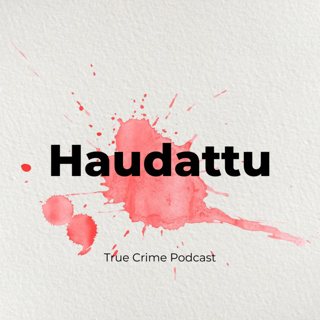
When Irish Vets of the American Civil War Invaded Canada in 1866
One year after the Civil War ended, a group of delusional and mostly incompetent commanders sponsored by bitterly competing groups riddled with spies, led tiny armies against the combined forces of the British, Canadian, and American governments. They were leaders of America’s feuding Irish émigré groups who thought they could conquer Canada and blackmail Great Britain (then the world's military superpower) into granting Ireland its independence.The story behind the infamous 1866 Fenian Raids seems implausible (and whiskey-fueled), but ultimately is an inspiring tale of heroic patriotism. Inspired by a fervent love for Ireland and a burning desire to free her from British rule, members of the Fenian Brotherhood – a semi-secret band of Irish-American revolutionaries – made plans to seize the British province of Canada and hold it hostage until the independence of Ireland was secured.When the Fenian Raids began, Ireland had been subjugated by Britain for over seven hundred years. The British had taken away Ireland’s religion, culture, and language, and when the Great Hunger stuck, they even took away her food, exporting it to other realms of the British Empire. Those who escaped the famine and fled to America were inspired by the revolutionary actions of the Civil War to fight for their own country’s freedom. After receiving a promise from President Andrew Johnson and Secretary of State William Seward not to interfere with any military plans, the Fenian Brotherhood - which included a one-armed Civil War hero, an English spy posing as French sympathizer, an Irish revolutionary who faked his own death to escape capture, and a Fenian leader turned British loyalist – began to implement their grand plan to secure Ireland’s freedom. They executed daring prison breaks from an Australian penal colony, conducted political assassinations and engaged in double-dealings, managing to seize a piece of Canada for three days.Today I'm speaking with Christopher Klein, author of the book WHEN THE IRISH INVADED CANADA: The Incredible True Story of the Civil War Veterans Who Fought for Ireland’s Freedom. He brings light to this forgotten but fascinating story in history.See omnystudio.com/listener for privacy information.
20 Huhti 202350min

The Destructive Power of the Family, From Oedipus to the Godfather
Family has been an inexhaustible source of conflict for writers from the ancient to modern worlds – maybe even more inexhaustible than war. From Greek dramatists Aeschylus and Sophocles to Confucius, family is a source of both self-destruction and self-actualization. In this episode, we explore how family dynamics have changed over the centuries but have surprisingly universal characteristics across time and space. We are joined by Krishnan Venkatesh, host of the “Continuing the Conversation” podcast. We being with a journey deep into the heart of Thebes—where King Laius has died at the hands of his own son Oedipus, and Oedipus has unwittingly married his mother Jocasta—and a subtler journey into the world of 20th century Japanese filmmaker Yasujirō Ozu, where a happily domiciled father and daughter, Somiya and Noriko, will be ripped apart by the norms and expectations of tradition. This is an exploration of the nature of family, the tension between the safety and anxiety that family creates, and the rich and multiple ways that different societies express these insights.See omnystudio.com/listener for privacy information.
18 Huhti 202332min

A 15th-Century Islamic Scholar Has Surprisingly Contemporary Advice on Handling Pandemics
Six hundred years ago, Ibn Hajar al-Asqalani —an esteemed judge, poet, and scholar in Cairo— wrote “Merits of the Plague,” a landmark work of history and religious thought that looked at accounts of centuries worth of plague outbreak and their possible origins, along with explanations of why God would allow such devastation to take place. This work wasn’t only theoretical but also based on experience. He survived the bubonic plague, which took the lives of three of his children, not to mention tens of millions of others throughout the medieval world. Holding up an eerie mirror to our own time, Ibn Hajar al-Asqalani reflects on the origins of plagues—from those of Muhammad’s era to the Black Death of his own—and what it means that such catastrophes could have been willed by God, while also chronicling the fear, isolation, scapegoating, economic tumult, political failures, and crises of faith that he lived through. But in considering the meaning of suffering and mass death, he also offers a message of radical hope. Today’s guests are Joel Blecher and Mairaj Syed, editors and translators of the book into modern English. We discuss the book and how it weaves together accounts of evil jinn, religious stories, medical manuals, death-count registers, poetry, and the author’s personal anecdotes. “Merits of the Plague” is a profound reminder that with tragedy comes one of the noblest expressions of our humanity: the practice of compassion, patience, and care for those around us.See omnystudio.com/listener for privacy information.
13 Huhti 202351min

Andrew Jackson’s Victory in the Creek War Set the Stage for Southern Secession 50 Years Later
An oft-overlooked chapter in American History is the Creek War, a conflict between the Creek Indians and a young United States hungry for expansion in the early 1800s. It’s remembered as an important early chapter in the life of Andrew Jackson, but what few realize is that it altered the course of early American history more than any other event, opening the Deep South to plantation cultivation and setting the stage for the Civil War. Today’s guest is Peter Cozzens, author of “A Brutal Reckoning: Andrew Jackson, the Creek Indians, and the Epic War for the American South.” We discuss the dispossession of Indian lands by the young American republic and an unexplored piece of early American history, and a vivid portrait of Jackson as a young, ambitious, and cruel military commander.See omnystudio.com/listener for privacy information.
11 Huhti 202339min

After Woodrow Wilson Suffered a Stroke, His Wife Edith Secretly Served As President for a Year
The United States has yet to elect its first female president, but over a century ago, there was a woman acting as the leader of this nation—before women could even vote nationwide. Her name was Edith Bolling Galt Wilson, wife of Woodrow Wilson. When Woodrow was incapacitated by a stroke in 1919, this fact was hidden from the public, Congress, and nearly everyone but his closest allies. Edith ran the executive branch, while at the same time downplaying her own role and influence. Portrayals of Edith tended to cast her as either a naïve rube who was manipulated by sophisticated political strategists or a power-hungry climber who seized control for her own gratification. But she was far more complex than these caricatures. Edith was raised by Confederates who mourned their lost plantation lifestyle, then rose to social prominence in the glittering years of Gilded Age Washington, then was elevated of the role of First Lady, just as the U.S. was becoming an international superpower. Today’s guest is Rebecca Boggs Roberts, author of “Untold Power: The Fascinating Rise and Complex Legacy of First Lady Edith Wilson.” We look at her many contradictions – an independent woman of means (who owned her own business and was the first licensed female driver in DC), at once deeply invested in exercising her own power but also opposed to women’s suffrage.See omnystudio.com/listener for privacy information.
6 Huhti 202356min

Victory Gardens Produced Nearly Half of America’s Fresh Produce in WW2. With Today's Supply-Chain Meltdowns, Are They Ready for a Comeback?
Victory gardens are perhaps the U.S. government’s most successful and long-lasting propaganda campaign. It began during World War One, when the War Garden Commission offered free handbooks for garden tips and published stories in newspapers to encourage citizens to plant food crops in any little piece of unused land so citizens could help provide food for America’s allies fighting in Europe. The idea caught on, and by the end of the war, over 5 million gardens were planted, producing nearly $10 billion (in today’s dollars) worth of food. By World War 2, nearly 60 percent of U.S. households had some kind of garden. Over 40 percent of the nation’s fresh produce was grown in a local garden. Today’s guest is Maggie Stuckey, author of “The Container Victory Garden: A Beginner’s Guide to Growing Your Own Groceries.” With a renewed interest in home gardening during the 2020 lockdowns, she realized the astonishing surge of gardening activity was a modern-day version of wartime Victory Gardens, when Americans planted a few vegetables in whatever little patch of ground they could find. And even more surprising was how eerily the tragedies mirrored each other through the decades: World War I with its gardens and its influenza pandemic, World War II with its gardens and its devastating loss of life, and 2020’s gardens in response to the coronavirus pandemic. We look at the surprising relevance of Victory Gardens today.See omnystudio.com/listener for privacy information.
4 Huhti 202340min

Despite the Spartans’ Last Stand at Thermopylae, They Are Still the Most Overrated Warriors of the Ancient World
The last stand at Thermopylae made the Spartans legends in their own time, famous for their toughness, stoicism and martial prowess. They were feared for never surrendering and never running from a fight, always preferring death to dishonor. But was this reputation earned? How much of it was true versus an exaggeration that compounded over the centuries?That’s the question that today’s guest, Myke Cole, asked himself when he set out to investigate their military history, which became his book “The Bronze Lie: Shattering the Myth of Spartan Warrior Supremacy,Spartan history had its moments of glory, but it was also punctuated by frequent and heavy losses. It was a society dedicated to militarism not in service to Greek unity or to the Spartan state itself, but as a desperate measure intended to keep its massive population of helots (a near-slave underclass) in line. What successes there were, such as in the Peloponnesian Wars, gave Sparta only a brief period of hegemony over Greece. Today, there is no greater testament to this than the relative position of modern Sparta and its famous rival Athens.Nevertheless, there is still plenty to appreciate about the Spartans when we look at them as real people, not as mythological figures.See omnystudio.com/listener for privacy information.
30 Maalis 202341min

The Real-Life King Arthur May Have Been a Roman Equestrian Who Served Marcus Aurelius
King Arthur. The search for the historical figure behind what is arguably the most famous cycle of legends ever has been relentless over the centuries. Many think he was a Romano-British military commander in the 5th/6th centuries who fought the Anglo-Saxons and saved Britain in its infancy. But other historians put the real-life Arthur at a much earlier date, arguing that the man whose story started the traditions of Arthur was a soldier name Lucius Artorius Castus who lived at the end of the second century A.D. There are enough historical clues to reconstruct Castus’s extraordinary, which career took him from one end of the Roman Empire to the other, bringing him into contact with tribespeople amongst the Steppe nomads – in particular the Sarmatians. For several decades the Sarmatians have been thought to be the inspiration behind Arthur’s Knights of the Round Table, among other British tales. Today’s guests are John Matthews and Linda Malcor, authors of “Artorius: The Real King Arthur.” We focus on Castus’s career, not only commenting on the parallels with the Arthurian tradition but also providing details about the Roman Empire of the second century A.D. along the way.See omnystudio.com/listener for privacy information.
28 Maalis 202347min






















